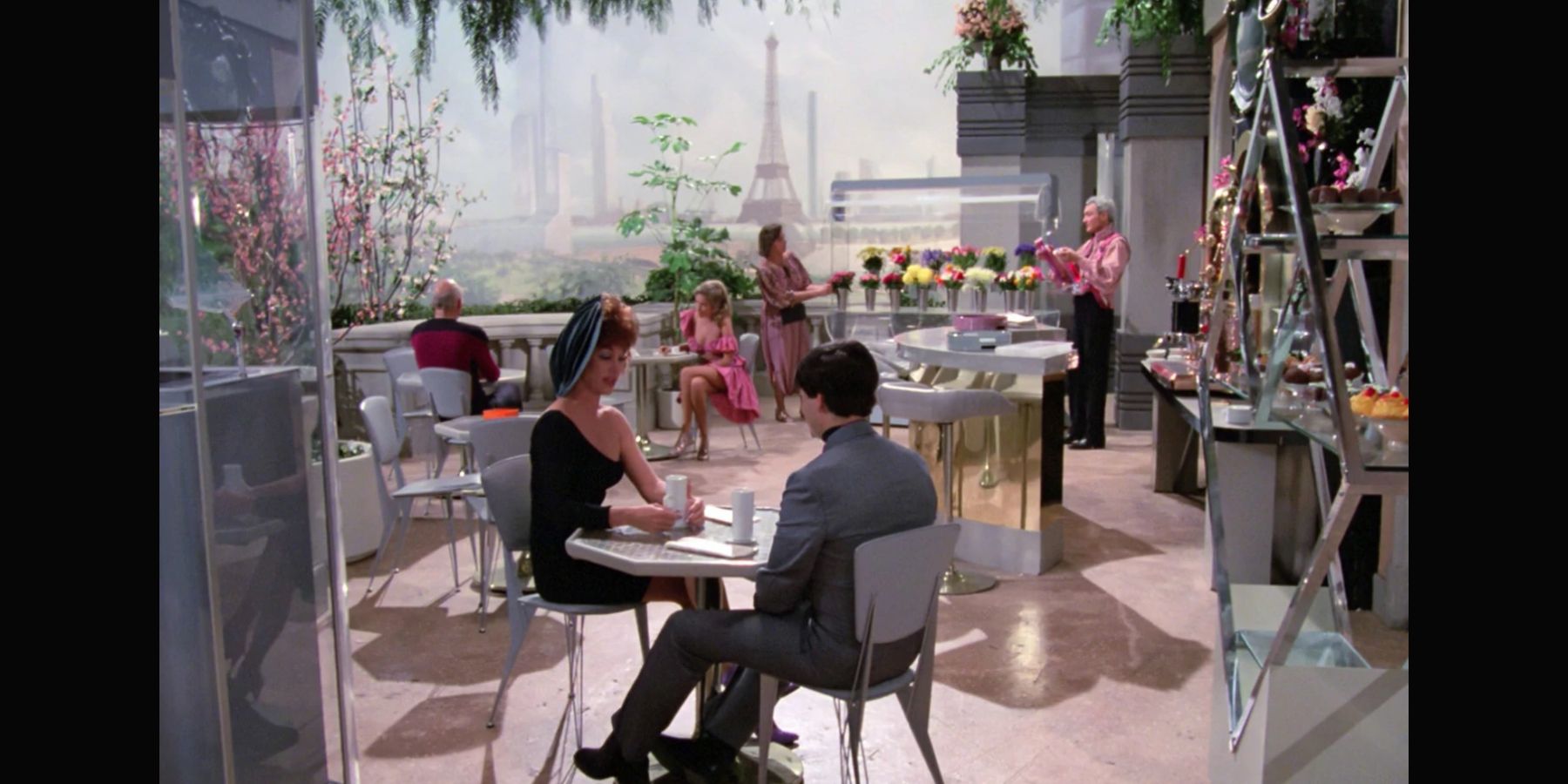Star Trek has a huge universe that is constantly growing through the additions of new shows and movies into the franchise. Holding up the narratives and vast array of alien life forms is a solid foundation of lore, fiction science, and various socio-political structures. Among these is Starfleet, a military/exploration organization (the era in question determines which aspect will have the emphasis). This organization's history and formal structure has been fleshed out a lot over the years. One of the key fundamentals of their culture, which spreads across a lot of the Federation — not just Earth — is their ‘evolution’ away from currency and monetary importance. While this sounds utopian in design, it does create some fairly dark issues.
The idea that the Federation had ridden itself of the need for money was first introduced in the golden age of Starfleet, during the early days of The Next Generation. The Federation had grown almost complacent over the years of peace: the war with the Klingons had ended, and the Romulans were keeping to themselves. Their evolution past money was something pioneered by Gene Roddenberry, the show's creator, in an effort to show the most ideal and utopian version of what humanity can achieve in the distant future. As the show began to distance itself from Roddenberry, however, who suffered a multitude of health problems at the time, they began to drift away from his vision, often for the best. And in later series, they began to poke holes in the moneyless culture.
One such hole, vaguely conceptualized during the last season of TNG, was that the Federation economy was much more trapping and controlling than first appearances might suggest, and acted as a fairly solid brick wall for social mobility. The idea of limiting people into very narrow career paths and choices is present (shown rather than specifically explored) within the Picard show. In this series, the stoic captain has grown old, and has retired from Starfleet to run his ancestral vineyard in France. This is great for him, a man who has inherited this land, but what would happen if someone else wanted a change in career and wanted to make wine? How could one can they ‘buy’ a vineyard when money no longer exists? Picard shows that inherited wealth is still prevalent, as Picard explicitly owns the vineyard, and there is no suggestion of a communist or sharing scheme. The Federation economy only makes it harder for everyone else to achieve dreams unrelated to what they were born into.
The same issue is present with the morally ambiguous Captain Sisko’s New Orleans restaurant in Deep Space 9. It’s great for Sisko, but what about someone else who wants to open up their own place in the same area? The lack of money eliminates even the possibility of purchasing an establishment. The only other option to rely on a barter system which, effectively, is a primitive and far less measurable form of currency. If one doesn’t have the inherited wealth, what exactly can they offer in exchange that the ‘wealthy’ (for want of a better word) would not already have?
The other issue that arises in a world without money is another double edge sword. Removing monetary incentive removes a massive pressure on people who are working endlessly to simply put food on the table. The Federation of the 24th century has eradicated world hunger through the widespread use of replicators, and providing shelter does not seem to be an issue. This creates a problem, however. If people don’t need to work to live, who would do the unsavory jobs necessary for a society to function?
Star Trek has provided half an answer for this, using AI and automated systems to carry out the majority of these functions, although this does raise another issue regarding the ethics of creating a permanent slave race. The problem is only half solved, however, as through the various shows it is shown that there are still actual people who are in jobs such as bartending or waiting on tables — but what’s the point if there is no wage and no opportunity to progress in this career? Not everyone can be a business owner, so surely there must be ten subservient roles needed to be fulfilled for every one privileged owner, with no apparent way to escape this.
The Federation economy is one of those science fiction concepts that sounds, on paper, to be utopian. But the further the concept is explored, the more holes can be found in its logic, and various societal dark underbellies are shown. It may seem like a freeing notion, to not be tied down by the necessity to make money each and every day to survive. But strangely, by removing this, the Federation has managed to find a way to solidify even further the massive class divide that exists today. Ironically, it's impossible to eliminate poverty by taking away all the money. It only seems like this is possible because audiences are only shown the lives of the social elites, such as Picard.






